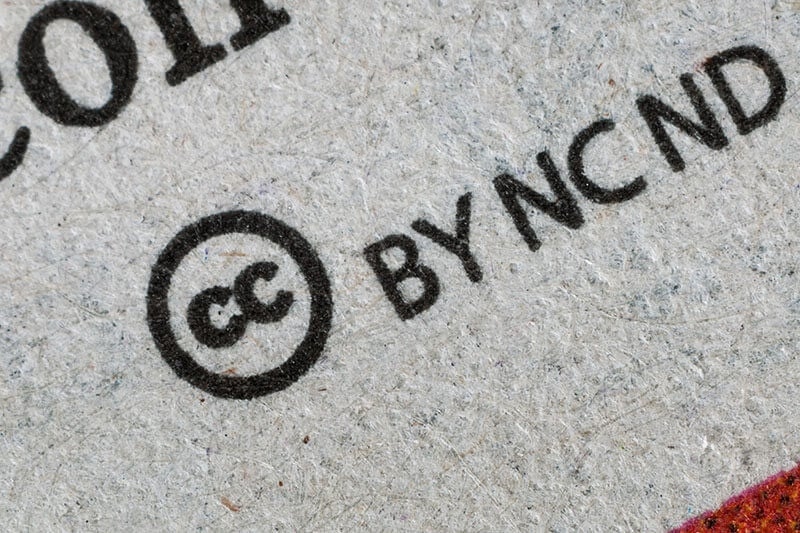Articles related to copyrights & music licensing: get to know all the fancy terms.

About Copyright
Difference between the standard YouTube license and the Creative Commons license
Youtube Copyright Claims
Does AI music have copyright protection?
What is Copyleft?
What is the best audio format?
List of Music Genres
Is classical music copyrighted?
How long do music copyrights last?
Creative Commons licenses
Royalty-Free Music VS Direct Licensing
Distribution of music royalties in Spain
Blanket License' for Music
What is Stock Music?
Types of Music Licenses: Guide for Beginners
Background Music Under Public Domain
Where To Get The Best Incidental Music
How to License Famous Songs
BMI, ASCAP, SESAC Alternatives
What is music without copyright or royalty-free music?
How to know if a song is Copyrighted?
How to Buy music Rights
The world of music licensing and copyrights can occasionally appear complicated and scary.
The Essentials of Copyright
Copyright is a type of intellectual property law that protects original authorship works. This protection is given to creators automatically as soon as their work is fixed in a tangible form, like written sheet music or a recorded audio file.
The main purpose is to encourage creativity by giving creators exclusive rights to their work. These include the right to reproduce the work, create derivative works (e.g., remixes or adaptations), distribute copies, or perform and display the work publicly.
Copyright protection usually lasts for the life of the author plus 70 years, although the duration may vary depending on the circumstances and the country.
It’s important to note that copyright only protects the expression of an idea, not the idea itself. For example, a songwriter can’t copyright the concept of a love song, but they can copyright the specific lyrics and melody they’ve created.
Music Licensing
Since copyright holders have exclusive rights to their work, anyone who wants to use copyrighted music must get permission from the owner.
This permission is typically given in the form of a license. Music licensing is the process by which creators authorize others to use their work in different ways, often for a fee or royalty payment.
There are several types of music licenses, including:
- Mechanical License: A mechanical license gives the right to reproduce and distribute a copyrighted musical composition in the form of phonorecords (e.g., CDs, vinyl records, or digital downloads). This license is usually required when a musician wants to create a cover version of a song.
- Public Performance License: This license allows the licensee to publicly perform a copyrighted work. Public performances include playing music on the radio, in a concert, or at a restaurant or retail store. Performance rights organizations (PROs) like ASCAP, BMI, and SESAC in the United States typically manage these licenses and collect royalties on behalf of copyright holders.
- Synchronization License: Also known as a “sync” license, this type of license is needed when a copyrighted musical work is used in conjunction with visual media, such as in a film, TV show, or video game. Sync licenses are typically negotiated directly between the copyright holder and the party wanting to use the music.
- Master License: A master license gives permission to use a specific recording of a song, as opposed to the underlying composition. This is often necessary when licensing music for film, TV, or commercials, as the production company may want to use a specific artist’s recording instead of creating their own version of the song.
- Print License: This license allows the licensee to reproduce and distribute sheet music or other written representations of a musical work. Print licenses are often sought by publishers, educators, and other entities that want to make sheet music available to the public.
Understanding the world of music licensing can be complex, but it’s crucial for musicians, producers, and other professionals to protect their work and make sure they are fairly compensated for its use.
Fair Use
In certain circumstances, copyrighted material can be used without permission under the doctrine of fair use.
Fair use is a legal principle that allows limited use of copyrighted material for purposes like commentary, criticism, news reporting, teaching, scholarship, or research.
It serves as a vital balance between the rights of copyright holders and the public’s interest in the free flow of ideas and information.
Conclusion
Getting a grip on copyright and music licensing is crucial for musicians who want to defend their creative works and make sure they get the right compensation for their work.
By familiarizing yourself with the various licenses, you’ll be able to better understand the intricate aspects of the music industry.
Gaining this foundation in copyrights and licensing will help you comprehend your rights and responsibilities when using other’s creations and to make informed decisions about protecting and monetizing your music.




















